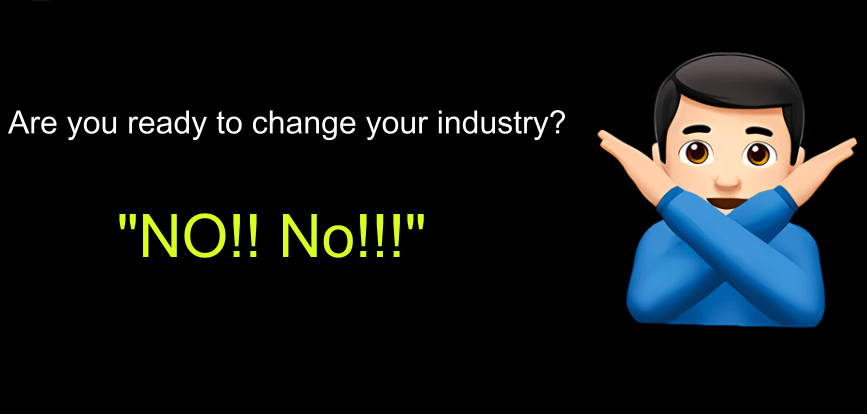In the workplace, we often face challenges that require cross-department or team collaboration. Learning how to effectively "leverage others" to achieve common goals, rather than working alone, is a crucial skill for every professional. Have you ever experienced this?
No matter the position or rank, completing tasks usually requires cooperation from others.

If you're lucky, you may get along well with your colleagues or departments, making collaboration easier. But most of the time, things don’t go as smoothly.
You might often wonder, why can't others cooperate with your work? Especially when communicating across departments.
"Obviously, my task is important, and my supervisor thinks so too. So why isn’t anyone cooperating?"
Let’s break down some common scenarios where cross-department or team cooperation is lacking, and I’ll provide some insights on how to handle them:
1. You Think It's Important, but the Other Party Doesn't
This usually happens for one reason:
"You’re only looking at it from your department's perspective—it benefits your team, but it’s not part of the other party's objectives."
The other party might be thinking:
"How does doing this benefit me?"
"What happens if I don’t do it?"
"Since it doesn’t really affect me, I’ll skip it and focus on my own tasks."
Before you communicate, it’s helpful to think through the following:
"Is there a way to align this task with the other party's interests?"
"Is this a small task that only takes a few days, or is it a large one requiring multiple people over a longer period?"
"What’s the relationship between your department and theirs, or between your supervisor and theirs?"
"Is the other department handling any major projects for the company? If escalated, how would upper management decide?"
"What’s the likelihood of success in this communication?"
By considering these factors, you’ll know how and whether to approach the situation.
Here are some guiding principles:
For small tasks that take just a few days, a personal chat or even treating them to a meal could help get things moving without much friction. For larger tasks, it’s best to align things at a higher level, which I’ll explain in the next section.
2. You Think It's Important, Your Higher-ups Think It’s Important, but the Other Party Refuses to Cooperate
Let’s analyze the potential reasons:
The other party may not be aware that upper management also considers the task important. In cross-department communication, people often claim, “This is very important,” so the other party might take it lightly.
The other party understands its importance but is constrained by resources. They might hope that upper management will decide which tasks can be delayed.
The other party may not have a good relationship with upper management.
In any of these cases, there’s a simple two-step solution:
Step 1: Align Privately
Always start by privately aligning with the other department or team before escalating to higher management.
Jumping straight to higher-ups is rarely a good idea.
First, it may make the other team feel you're being overbearing, leading to resistance.
Second, constantly involving higher-ups could signal that you lack the ability to resolve issues on your own.
What should you align on privately? Clarify the background, the context, the importance your higher-ups place on the task, and what kind of support you need. If they agree, move forward with planning, setting goals, and scheduling. If they disagree and express difficulties, acknowledge their challenges and suggest bringing in higher-ups to find a solution.
Key Tactic 1: Show empathy for the other party’s challenges to earn goodwill.
Key Tactic 2: Propose involving higher management, framing it as a way to solve problems together, since they have difficulties in supporting the task.
Key Tactic 3: If their "difficulties" are just excuses, the mere mention of bringing in higher-ups might prompt them to cooperate.
Step 2: Align with Higher-ups
When you escalate to higher management, what should you discuss?
This is where you leverage authority. Explain the business background, the plan, and the necessary cooperation. After this, kindly acknowledge the other department’s challenges in front of the higher-ups.
Usually, at this point, the other department will agree on the importance of the task but will highlight a number of difficulties. The next step will depend on the higher-ups’ decisions.
Either this task gets delayed,
Or other tasks get delayed,
Or the department is asked to manage the workload themselves.
In any case, the task will at least have a clear resolution.
3. The Other Party Agrees, But Can’t Make a Decision
This usually means you’re dealing with the wrong person—someone who doesn’t have the authority to make decisions.
The solution? Find the person who can make decisions.
Once you do, the situation will likely fall into one of the previous two categories, and you’ll know what to do.
4. Conclusion
These are some practical tips to help others cooperate more effectively with you.
The key points are to:
Understand the other party's difficulties,
Find ways to help them solve problems,
Leverage the authority of higher management.
The goal is to reduce conflict while solving the issue. You want to resolve the matter without making enemies, aiming for a "win-win" outcome rather than a zero-sum game.







